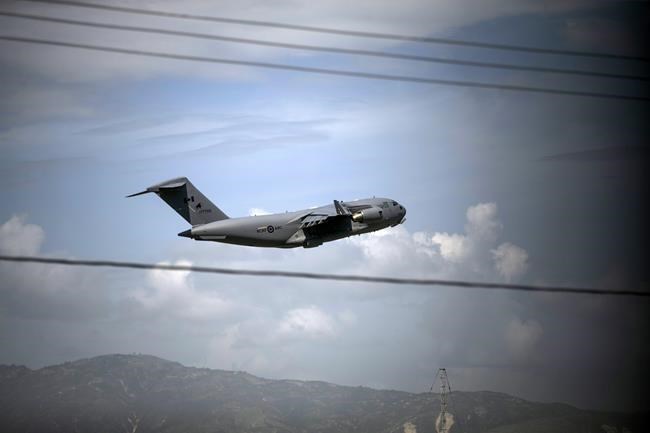Montreal’s Haitian community is expressing opposition to the possibility of foreign troops being dispatched to Haiti amid civil unrest in the Caribbean country.
The United Nations Security Council postponed a vote Wednesday on a resolution demanding an immediate end to the violence and criminal activity that is crippling the country. A second resolution authorizing foreign military action is currently being worked on after an Oct. 7 request from Prime Minister Ariel Henry.
The first resolution would also impose sanctions on high-profile gang leader Jimmy Cherizier — nicknamed “Barbecue” — as well as other Haitian nationals and groups connected to criminal activity and violence.
Chantal Ismé, vice-president of community organization Maison d’Haïti, said most of Montreal's Haitian community opposes foreign military intervention.
“We are against any foreign intervention or occupation," Ismé said. "The majority of people that come to our organization are against this intervention. There is only a handful of people that are open to the idea."
According to Ismé, activists and different social groups in Haiti have put forth their own resolution.
"The people want the de facto and illegitimate prime minister to resign. What they also want is co-operation with the other nations in such a way that it upholds Haiti’s sovereignty and actually addresses the real issues at hand. They need to listen to the people before trying to provide aid through force," she said.
She cited the many foreign occupations Haiti has endured over the years as the reason for the strong opposition both in Haiti and among the Montreal diaspora.
Things took a turn for the worse last month after Henry announced steep increases in fuel prices, prompting protests across Port-au-Prince and the blockade of the largest fuel terminal in the country by armed gangs.
Jean Ernest Pierre, owner and host of CPAM 1410 — a French-language radio station primarily serving the Haitian community in Montreal — said that foreign military intervention and occupation have never helped Haiti and have only caused more harm.
“The situation is unprecedented. We have never seen something like this before. People believe that foreign occupation has negatively impacted the country. So, they are very skeptical,” Pierre said. He said Henry is powerless to bring the current crisis under control and should resign.
On Oct. 15, Global Affairs Canada confirmed that through a joint operation with the United States, a Canadian military plane helped deliver three mine-resistant, ambush-protected vehicles and three armoured vehicles that had been purchased by the Haitian government.
Emmanuel Dubourg, Liberal MP for the Montreal riding of Bourassa who immigrated from Haiti in 1974, saidhe is worried for family currently living in the country. His riding also has a large Haitian community.
“The Haitian government requested aid, and we are still analyzing the situation. Canada is not alone in this. But we are very involved. A few days ago, Prime Minister Justin Trudeau put in place a task force for Haiti. We are working very diligently,” Dubourg saidin an interview.
“The country is in crisis, and I am personally very affected by the situation. I am worried, and I am looking at the people over there, my brother and sisters, that are suffering. This is a political and humanitarian crisis. We must absolutely start taking action.”
In addition to the fuel crisis, Haiti is also dealing with a deadly cholera outbreak and major food and clean water shortages.
This report by The Canadian Press was first published Oct. 20, 2022.
— With files from The Associated Press.
---
This story was produced with the financial assistance of the Meta and Canadian Press News Fellowship.
Marisela Amador, The Canadian Press


